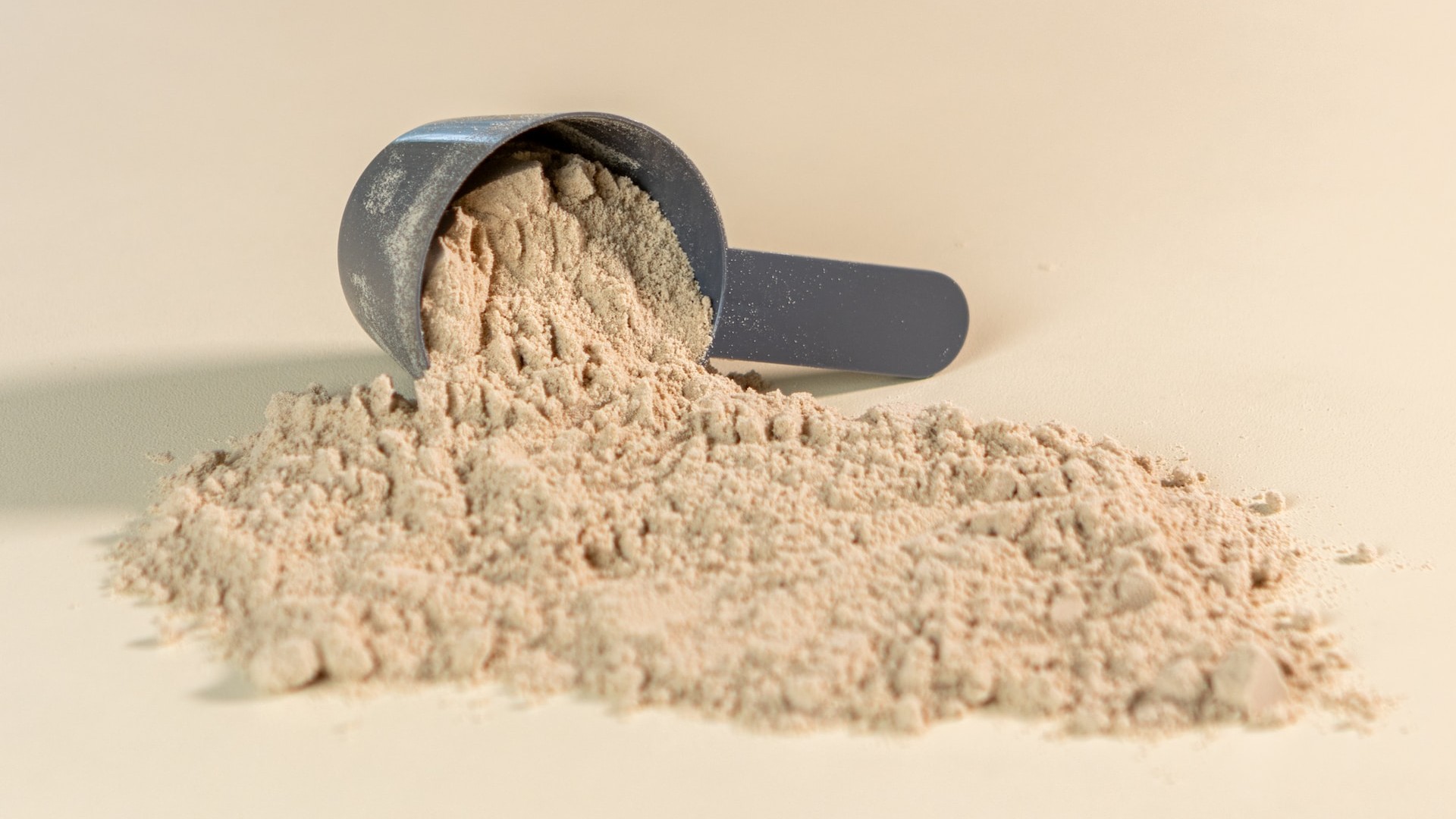Formulate user Miranda wrote in with some questions about whey protein and hair loss:
My brother-in-law keeps telling me to stop drinking smoothies made with whey protein, because it causes hair loss. Is this true, or just bro science?
Thanks for writing in, Miranda!
The short answer to your question is yup, it's probably just bro science.
"There is very limited evidence that whey protein is linked to hair loss," says Integrative and Functional Registered Dietitian Christina Stapke. "There was one small study that was done that cites whey protein isolate (versus concentrate) caused hair loss due to a potential increase in testosterone, but this has not been supported by additional literature."
Let's take a second to dig into this study, because it's got some interesting problems.
In 2010, a hair transplant surgeon named Dr. Lawrence Shapiro published a document on his website titled "The Effects of Whey Protein Concentrate vs. Whey Protein Isolate on Hair." In it, the doctor claimed that 94% of the individuals in his study who consumed whey protein isolate reported hair loss, breakage, reduced bounce, et cetera. He claimed that 30% of these individuals reported what he called "significant damage."
On the other hand, the doctor reported that of the people in the study who consumed a "Help Hair" whey protein concentrate shake, 94% reported that their hair had become more shiny, less prone to breakage, bouncier, et cetera. He claimed that "significant hair improvement" was noted by 62% of this population. He also claimed that the whey protein concentrate group experienced superior nail growth, as a surprise added benefit.
So if you take the doctor's findings at face value, whey protein concentrate = hair loss, and whey protein isolate = hair improvement. And if all of that sounds too cut and dry to be true, well, that's because it is. There are a lot of problems with this report.
"This has not been supported by additional literature", says Christina. "There was no control group to validate their findings. The doctor was also doing a study to promote his product so there is a fair amount of conflict of interest."
That last comment of Christina's is especially interesting, as it speaks to the biggest problem with this study. Not only is Dr. Shapiro a hair transplant surgeon, he's also the Dr. Shapiro of Dr. Shapiro's Help Hair(TM) Shake, the very whey protein isolate shake that was used in the study. Surprise!
Science involves objectivity, rather than subjectivity. Even if you swear to yourself that you will evaluate a product without bias, you're going to be biased to evaluate that product positively if you were involved in its creation. This is why, in research, it's considered a major flaw to have a treatment developer be a part of the team that evaluates if the treatment is effective or not.
It's also a major problem if you're evaluating a product that you stand to financially benefit from - again, if it's tied into your livelihood, you will have an automatic bias to want to rate the product positively. This is why researchers have to disclose if their research is funded by an institution that would financially benefit from a product being effective. No researcher wants their funding to be cut, and therefore, they're likely to experience some form of bias that may influence the outcome of their research.
Considering all that, plus the fact that there's no further evidence tying either whey protein isolate or whey protein concentrate to hair loss, plus the fact that this document was published on the doctor's own website instead of in a reputable, peer-reviewed journal (which means there were no other experts involved to evaluate the quality of the research)... well, it doesn't seem like this study is something to worry about. It seems more like something that's meant to scare people into buying hair loss protein shakes that they don't really need. Until a study that links hair loss with whey protein shows up in a reputable, peer-reviewed scientific journal, there's no need to toss out any bags of protein powder.
Now, all that being said, Christina did share with us that there are a few, very specific conditions under which whey protein could affect hair health.
"One possible mechanism through which it could cause hair loss is if someone had a sensitivity to whey protein, especially if they a thyroid autoimmune disease like Hashimoto's thyroiditis," she says. "Hashimoto's thyroiditis is an autoimmune disease of the thyroid, where our body produces antibodies to our own thyroid issue. This can trigger inflammation in the thyroid which often can lead the thyroid to not produce thyroid hormone efficiently (hypothyroidism)." Hair loss is a common symptom of hypothyroidism and, if you have a sensitivity to whey protein in addition to a condition like Hashimoto's, its consumption could potentially make that symptom worse.
For clients who suspect a potential sensitivity to whey protein, Christina has them undergo peptide level testing, as this method of testing is most likely to catch a potential sensitivity vs whole protein testing. And if it turns out the individual does have a sensitivity to whey, she recommends organic pea protein isolate, or organic bone broth protein/hydrolyzed beef protein that has been rigorously tested for potential toxins.
But again, most folks don't have a sensitivity to whey protein - it's generally quite safe to consume. Christina is cool with whey protein - "If someone is not sensitive to whey, I generally recommend the concentrate form of whey as it contains immunoglobulins which can be wonderful for the gut and immune system."
So, is whey protein linked to hair loss?
There's no solid evidence that whey protein is linked to hair loss for people who aren't sensitive to whey protein, and don't suffer from a condition that causes them to experience hypothyroidism. If you're concerned about hair loss, it might make more sense to first cut down on bad hair health habits, like heat styling and skipping conditioner, before you start cutting things out of your diet.
Wanna learn more about the ins and outs of hair and skin care? Here's what you should read next:
Does alcohol cause hair loss?
Yup, alcohol can contribute to hair loss. Here's how.
Energy Drinks and Hair Loss: Is There a Connection?
Could energy drinks be connected to hair thinning? We talked to two dietitians to find out.
What Is A Cosmelan Peel?
"The results of the treatment can be significant and long-lasting, making it a worthwhile investment for some patients."
Oil Training Hair: Q&A With A Dermatologist
Everything you need to know about oil training your hair
Static Wrinkles 101: Treatment and Prevention
Can you actually prevent the development of fine, static lines?


